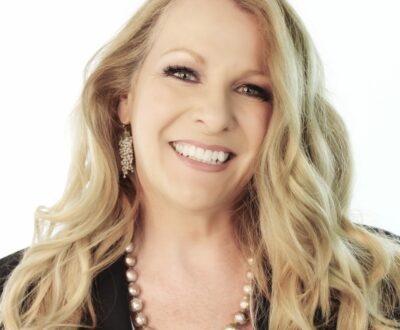Real estate investors love discovering new sources of capital to fund their deals, but sometimes getting to that capital can be a little complicated. Think Realty Magazine sat down with Kaaren Hall, founder and CEO of self-directed account administrator uDirect IRA Services, to learn more about how real estate investors working with her company leverage and build their retirement capital.
Think Realty Magazine:
What do self-directed IRA custodians and administrators do?
Kaaren Hall:
In general, an IRA custodian helps investors begin to save for retirement and then take those dollars and turn them into investments. A self-directed IRA custodian usually permits a lot more types of investments than a conventional IRA custodian, and they also often must follow a lot more regulations because they literally take hold, or custody, of the assets that an investor is buying with their IRA as an investment. Self-directed administrators work directly with the account-holders through the processes of opening accounts, funding them, reviewing investments, and other administrative duties. Administrators’ time is not monopolized by the cash-management side of the fence.
TRM: What can self-directed IRA investors usually hold in their SDIRAs?
KH: Different self-directed IRA providers will decide which assets they will and will not custody. Most custodians transact a variety of investments in a variety of asset classes, including real estate, mortgage notes, private equity investments, hard-money loans, and certain qualified types of precious metals and currency. Some more exotic investments require highly specialized custodians, such as bitcoins and racehorses, for example. Some custodians have creative structures in place to permit this or have special resources, or investors use self-directed 401(k)s for that type of investment because the rules for holding exotic investments are different for 401(k)s.
TRM: What is the most common mistake you see people make about self-directed IRA administrators and custodians?
KH: Probably the biggest mistake people make is they forget their self-directed IRA is exactly what the name implies: self-directed. We get so spoiled by our financial advisors. They tell us what to do and where to invest. When you are self-directed, however, your administrator or custodian will not do that for you. It’s not that we don’t want to, but that we legally cannot. Also, we do not give legal, financial, or tax advice. We are neutral in the decision-making process.
TRM: What is the most important thing an IRA custodian can offer a client?
KH: Some really simple things probably mean the most, especially if you are a real estate investor: someone to answer the phone, a personal transaction coordinator to work with you over the long term, and trained, seasoned people who understand the industry. You need someone working for you who speaks the industry language.
TRM: What types of real estate investments work best in a self-directed IRA?
KH: Real estate in its various forms, including investing in residential and commercial properties, trust deeds, private placements, and performing and non-performing real estate notes, is probably the most popular investment we see. One thing that many people do with their capital held in an IRA is lend on it. People take their IRAs and use them to make secured loans against real estate. It’s a great investment strategy because they get a good, reliable return on an investment secured (if they did their due diligence) with solid collateral, and they also are helping bolster the economy wherever they made that loan. It’s a great way to help an economy at a grassroots level.
TRM: Let’s conclude with a success story. What’s one of the things you’re proudest of accomplishing at uDirect?
KH: I think my favorite story is about helping an account holder avoid investing half a million dollars in a fraudulent asset. I got a call one day from a man asking if we allow unsecured notes in the accounts we hold. We do. The next day, a woman opened up an account with about $500,000 in it and immediately wanted to loan it all out on an unsecured note. Of course, we had to send that to compliance, who did a little research and concluded that the transaction was a little suspect: An unsecured $500,000 note at 15 percent on real estate simply does not make sense. At that point, we could have simply refused to handle the investment. However, we did a little more digging, including working with some of our extended network who identified the borrower as a man who had been jailed for embezzling money from investors. We were able to tell her that the asset, the loan, was not “administratively feasible” and she did not make the investment using our services. At that time in particular, there were so many people nearing retirement making desperate moves like this because they felt like they had to make their money back overnight after the financial crash in 2008. She fit into that category perfectly, and we may have helped her avoid a terrible loss.
How to Do A Little Digging: Due Diligence on Investment Providers
Before you make any investment, you run the numbers and evaluate the strategy. But do you also conduct a little due diligence on the investment provider? The integrity of your provider is as important as the integrity of your investment strategy, so be sure to do a little digging on that person or company before trusting them with your money.
Do A Web Search
Take results with a grain of salt, since many companies pay people to write bad reviews for competitors and others actually engage in a form of blackmail where they post bad reviews and then demand payment from the target company before they will take them down. Don’t be afraid to address any issues directly with the company to gauge their reaction, or seek information in protected forums that screen for paid and false reviews both positive and negative.
Do a Fraud Check
The North American Securities Administrators Association (NASAA) and the Financial Industry Regulatory Authority (FINRA) offer public information about many investment providers. The American Association of Retired Persons (AARP) does as well. Remember that these organizations may not necessarily have comprehensive information or tailor their content to self-directed investors, however, since the majority of Americans do not self-direct and tend to leave their retirement in stocks and bonds.
Ask For References
Ask the investment provider for a list of other clients who have worked with them successfully. This is a great way to learn about their methods and daily operations as well as the ultimate return on investment.























0 Comments